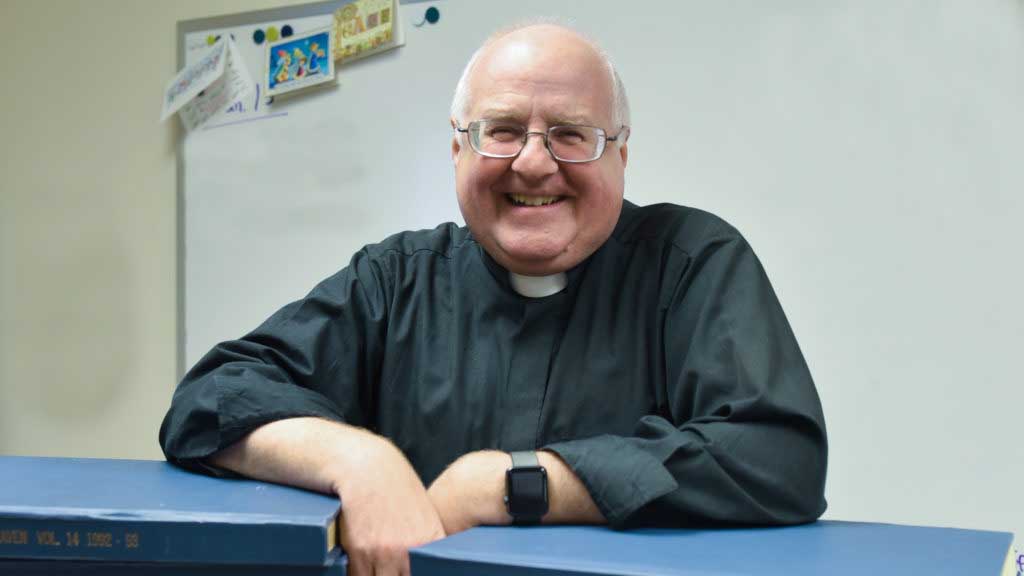
by Father Mark Goldasich
Remember when you received your first one, how excited it made you feel? Sadly, it didn’t take long for the novelty to wear off, and what was originally seen as a blessing soon became a curse.
I’m sure you know what I’m talking about: email! Oh, what a monster has been unleashed upon the world.
Back in January, I encouraged readers to use the second Monday of that month to participate in National Clean Off Your Desk Day. I’m happy to report that I did it . . . and the results lasted for at least 72 hours.
The second Monday in February turns our attention to another project: Clean Out Your Computer Day. This “clutter” is much sneakier, because it’s not as visible as the debris that overtakes our desks. Yet it has a profound effect on the functioning of our computers, as well as our mental state.
As of this writing, I checked three of my six email accounts. One contains 25,130 emails; another: 1,200; the third: 3,888. I was so distressed at those numbers that I didn’t have the energy to check out the other three.
I’ve read with interest the suggestions of Merlin Mann, a productivity expert, who promotes “inbox zero.” He suggests checking email only three times a day and then doing one of four steps for each: delete, delegate, defer or do. In my case, Mann missed two of the D’s: Decide, dummy!
Now, don’t get me wrong: I’m not a total slug regarding my computer’s health. Just this morning, I ran a program called CleanMyMac that: removed 5.17 gigabytes of junk; checked for viruses or malware (none); and suggested three tasks for me to perform to speed up my Mac.
Unfortunately, this program won’t automatically decide what to do with all those emails. So, you know what I’ll be working on this coming Monday.
Computers have made my life much easier and fuller. But they have a darker side as well. What concerns me about computers has more to do with the users than the equipment. What I’d like to see cleaned up or deleted from them are the following:
• hackers who steal personal information or prey upon vulnerable people like the elderly for financial gain
• rumormongers or spreaders of urban legends or other misinformation that frighten or tarnish people’s reputations
• bullies who cause others mental anguish or drive them to destructive behavior
• writers of nasty, anonymous emails or online posts that demean and disrespect people’s human dignity
• stalkers whose intent is to abuse or intimidate children or adults
• distributors of objectionable material
Cleaning up the things that clog our computers can free them to flood our lives with things that truly enrich us: sustaining friendships across the miles; armchair visits to beautiful places like museums or special sites (like the Vatican or the Holy Land); videos and podcasts that deal with the Bible or enriching conferences and retreats; and gateways to upbuilding information from online books to university courses.
I’ll close with this observation from comedian Emo Philips that all users have felt at one time or another: “A computer once beat me at chess, but it was no match for me at kickboxing.”

